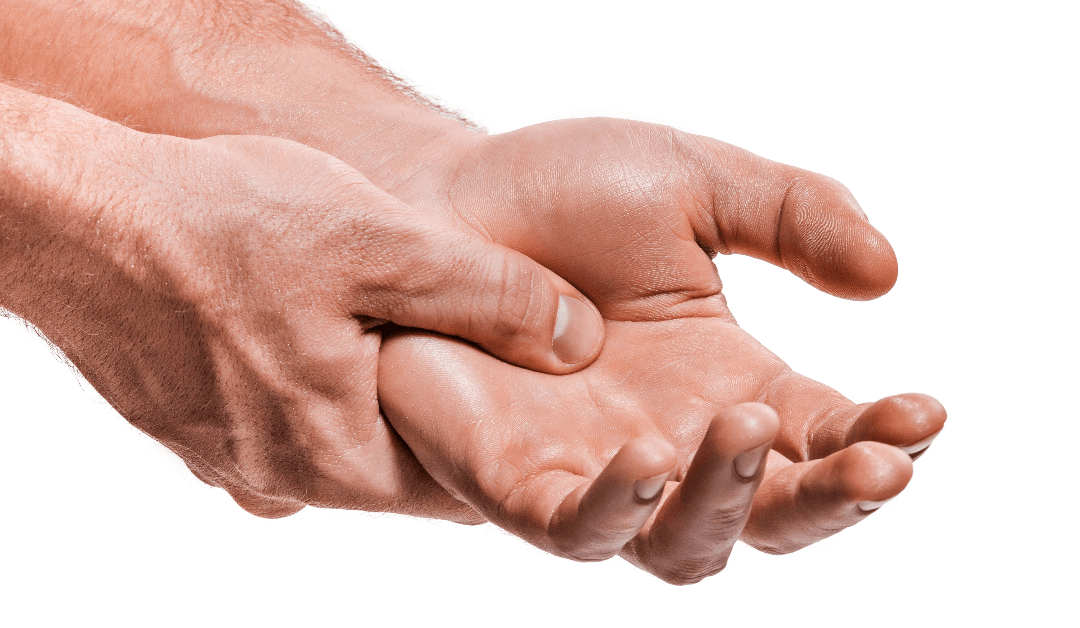Carpal tunnel can affect any individual of any age bracket, and any workplace. Anywhere from 1-6% of American adults can suffer from this syndrome. Whether you’ve experienced it first hand or are wondering if you may be susceptible to it, it’s worth it to do your research and be prepared. You’ll want to continue reading to find out what the signs of carpal tunnel syndrome are, along with orthopedic specialists in Celebration who can help with your symptoms.
What Part Of Your Hand Is Affected By CTS?
The carpal tunnel is a narrow passageway surrounded by bones and ligaments on the palm side of your hand. The syndrome happens when there is pressure on the median nerve, causing compression. The median nerve runs from your forearm through the carpal tunnel passageway to your hand. This nerve helps with your hand’s motor functions along with providing sensation to the palm side of your fingers and thumb.
CTS symptoms include numbness, weakness and tingling in your hand and arm. The tingling sensations and numbness may appear in your hand or fingers. Typically the thumb and index finger have the most tingling sensations, while the middle and ring finger may experience some numbness, while the little finger will not. The sensation may travel upwards to your arm, and may have almost a slight burning response. The numb feeling may become more persistent and may not go away. CTS symptoms usually occur while you’re grasping an object, like a glass or steering wheel, but can occur at any point as long as the pressure on the median nerve is present.
Carpal Tunnel Syndrome Causes and Risk Factors
The causes of CTS can vary dramatically, as the median nerve pressure can take place in multiple scenarios. If you suffered from a wrist fracture at any point in your life, you may be more susceptible to CTS symptoms, as this can cause narrowing of the carpal tunnel. If you suffer from rheumatoid arthritis, the inflammation and swelling from it can also narrow your carpal tunnel. There could even be multiple reasons you’re experiencing CTS symptoms.
Other causes of CTS may be from nerve-damaging conditions, such as diabetes, which can increase your risk of nerve damage. CTS is often seen more in women than men, which may be due to women having smaller carpal tunnels to begin with, as can also be a leading contributor to symptoms. If you are overweight or have other underlying medical issues, such as thyroid disorders, kidney failure, or menopause, they may increase your chances of CTS.
Even workplace environments could potentially increase your CTS symptoms, although the scientific evidence linking these two isn’t completely conclusive either way. But if you work with vibrating machinery or are performing tasks with repetitive or prolonged flexing of the wrist, you don’t want to rule that out as a potential problem.
Some prevention may be able to relieve some of your symptoms, depending on which factors may affect you. If your work does require a lot of repetitive motions and gripping, using softer pens or typing softly can help alleviate the issues, along with a proper mouse that fits to your hand. Take frequent breaks as well, not only to give your hand a break, but to also do some gentle hand and wrist stretches.
Keeping your wrist in a relaxed, middle position is best, where it’s not elevated or turned downwards. Sitting with incorrect posture can lead to your shoulders rolling forward, shortening your neck and shoulder muscles and compressing the nerves in your neck. This in turn can hurt your hand nerves as well. Cold temperatures can lead to hand stiffness and pain, so be sure to keep your hands toasty warm.
Contact Us
Are your carpal tunnel syndrome symptoms still persistent? Ready to get the help and treatment you need in Celebration? Contact Celebration Orthopaedic & Sports Medicine Institute today. We offer many noninvasive treatments to get you back to yourself in no time, as well as more precise surgeries to give you the relief you need. Call or visit us today!

